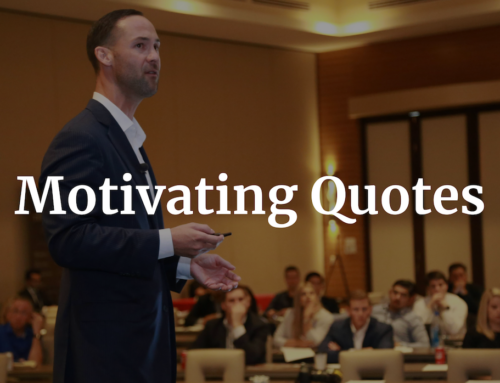Table of contents
Let’s take a journey back to the days when dinosaurs roamed the earth—well, not quite, but close. Picture this: large, established sales organizations like Salesforce, Oracle, ADP, and their ilk. These titans of industry didn’t just pop up out of nowhere; they meticulously built robust sales systems that became the gold standard in sales training and management. It’s akin to Hogwarts for salespeople, minus the wands and spells but with a lot of spreadsheets and targets.
The “Sales School” Era
In the good old days, landing a sales job at one of these giants was like getting an acceptance letter to the Ivy League. You were put through a rigorous training program, a sort of bootcamp for budding sales warriors. You learned the ropes from the ground up—what was expected of you, how to hit your targets, and, crucially, how you would be managed. Think of it as “Sales School.”
These companies had the size and resources to invest heavily in both rep enablement and manager enablement. Reps came out knowing how to sell, and managers knew how to manage these reps effectively. The system was self-sustaining, producing well-rounded sales professionals and adept managers. It was a beautiful cycle of learning, doing, and teaching.
The Rise of Mid-Market Chaos
Fast forward to today, and the landscape has dramatically changed. Enter the era of mid-market sales organizations, often with just 10-50 reps. Thanks to the technological trifecta of AWS (making startups cheaper to run), venture capital (making money more accessible), and cloud CRM systems (making sales operations smoother), we’ve seen an explosion of these smaller sales teams.
Here’s where things get tricky. These mid-market firms, despite their ambition, often lack the critical mass needed to implement comprehensive training programs. There’s no “Sales School” here—just a crash course in survival. Reps are thrown into the deep end, often without the life jacket of solid training. They learn on the fly, pick up bad habits, and before you know it, they’re managing new reps. This is what I like to call “management by vibes.”
The Vibe Shift
So, where did this vibe-based management style come from? Imagine starting your sales career at a string of Series A, B, or C startups. Each place has its quirks, its own way of doing things—or not doing things. You pick up a bit here, a bit there, but there’s no cohesive system. It’s like trying to learn to cook by bouncing between a French bistro, an Italian trattoria, and a sushi bar. Sure, you might pick up some techniques, but you’ll never master any cuisine.
When these reps move into managerial roles, they bring with them a patchwork of experiences, none of which are grounded in the rigorous training programs of yesteryear. They end up managing by feel, relying on intuition rather than tried-and-true methods. The result? A hodgepodge of management styles that often do more harm than good.
The Rent-a-Rigor Solution
Recognizing this gap, some firms turn to external consultants like Harper James to inject some much-needed rigor into their sales processes. It’s like renting a personal trainer to whip your team into shape. However, these engagements are typically short-lived. The consultant leaves, and the rigor often goes with them, leaving behind a team that might be a bit more disciplined but still lacks a deeply ingrained system.
The LinkedIn-TikTok Generation
Adding fuel to the fire are the self-proclaimed sales gurus on LinkedIn and TikTok. These folks are more than happy to fill the void with catchy phrases and superficial advice. It’s like getting your medical advice from WebMD instead of an actual doctor. Sure, it sounds good, but it’s rarely grounded in the hard-won lessons of experience. The result? A generation of sales reps and managers marinating in feel-good content with little substance.
The New Reality
We used to get sales reps who had been through the Oracle or ADP bootcamps, ready to hit the ground running. Now, we’re getting folks who’ve been trained by LinkedIn influencers. Is it any wonder that attainment is often a disaster?
It’s a systemic issue. There are hundreds of thousands of sellers and managers who have come of age in this new world of small, mid-market sales organizations. They’ve never been through a rigorous training program, and it shows. The lack of foundational skills and structured management is evident in their performance.
The Way Forward
So, how do we solve this? There’s no easy answer, but one potential solution is to build internal training programs that mimic the rigor of the old guard. Companies, regardless of size, need to invest in comprehensive rep and manager enablement. It’s not enough to rely on external consultants or hope that your reps will pick up what they need along the way.
Another approach is mentorship. Pairing new reps and managers with veterans who have been through the traditional sales training grind can help transfer those invaluable skills and experiences. It’s about creating a culture of learning and continuous improvement, where knowledge is passed down and refined over time.
And perhaps most importantly, we need to be critical of the content we consume. Not all advice is created equal. Seek out those who have been in the trenches, who have the scars to prove it, and who can offer more than just buzzwords.
Reading Progress















